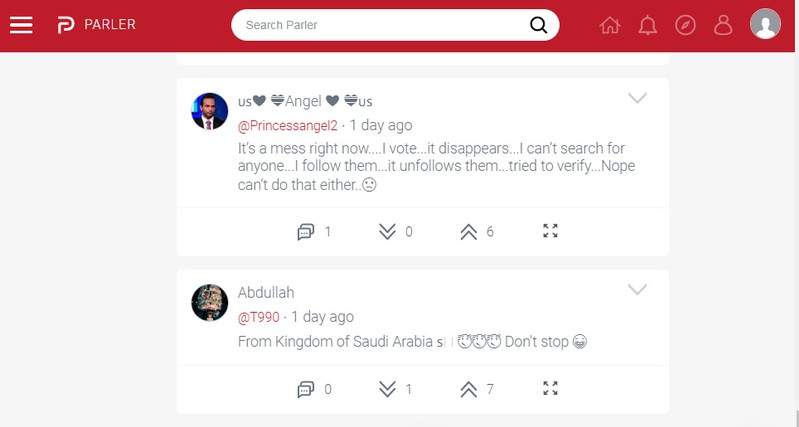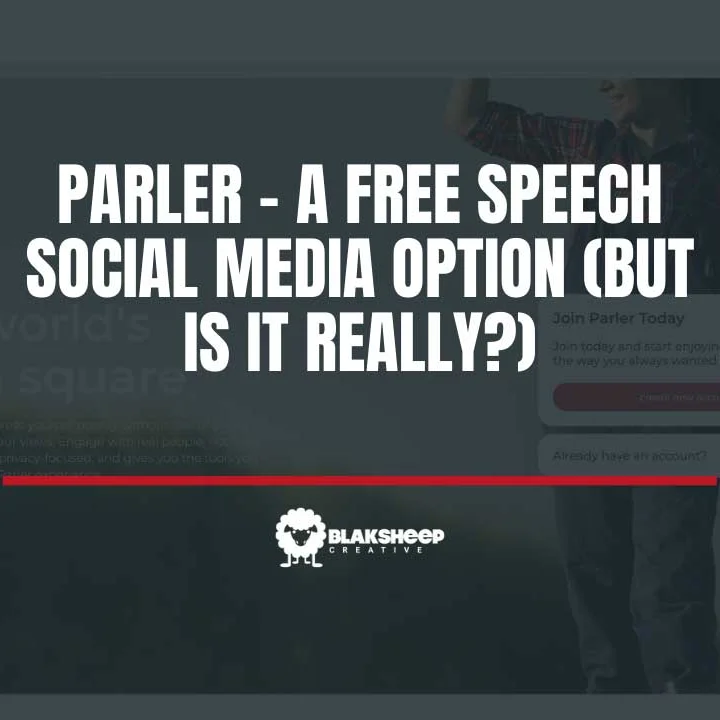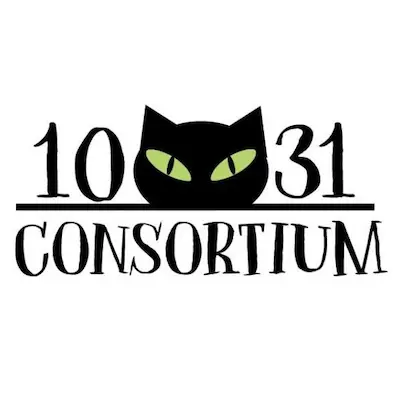If there’s one thing that we’ve learned lately, social networks aren’t exactly known for being a safe haven for free speech.
But there’s a new challenger in town, Parler, and it’s gaining traction fast.
Facebook and Twitter users are flocking to the new social media platform in droves, enticed by Parler’s anti-censorship stance.
But is Parler really anti-censorship or just another wolf in sheep’s clothing?
What is Parler?
Parler is an alternative to Twitter, with over 1.5 million users. It is rapidly growing in popularity, especially as Twitter, Facebook, and other social media giants crackdown on misinformation and questionable content.

This new social media platform closely resembles Twitter in appearance and function (although it’s not as sleek and well-refined).
Just like other social media sites, the basic premise of Parler is for users to follow each other, engage with public figures, news outlets, celebrities, and other users.
MeWe is another alternative social media platform that’s gaining traction in 2020 as well. If you’re a small business owner, you may want to read our Ultimate Guide to Promoting Your Business with MeWe. Moreover, if you’re evaluating the potential of various social media platforms for your business, be sure to check out this comprehensive article on whether social media is right for all businesses.
Public posts on Parler are known as “parlays” rather than “tweets” and can contain up to 1,000 characters (unlike 28 characters on Twitter).
Parler’s users can “echo” or “vote” on “parlays” to show their approval.
Just like on Twitter, users can search for hashtags, comment on posts, “echo” posts (retweet), and “vote” (like) posts.
There’s also a direct messaging feature, standard with any social media platform these days.
Parler seems like a Twitter copycat so far, right?
So what’s unique about Parler?
Parler’s main selling point is that it embraces freedom of speech with little to no moderation.
“If you can say it on the street of New York, you can say it on Parler,” Founder and Chief Executive John Matze explains.
@parler_app CEO John Matze discussing content curation by Twitter and Facebook on @FoxNews this morning. pic.twitter.com/WpUqdQdEwn
— Shirley & McVicker Public Affairs (@SMPubAffairs) November 5, 2020
It seems as though Parler is capitalizing on recent allegations against Twitter and Facebook for censoring content and discriminating against right-wing political speech.
Parler claims to moderate its content based on FCC guidelines and Supreme Court rulings, unlike other platforms that often use fact-checkers or editorial boards.
Basically, Parler is the wild-wild-west for facts, leaving it up to users to check the validity of facts and posts.
Who are Parler’s Typical Users?
As mentioned earlier, Parler has approximately 1.5 million users compared to Twitter (330 million) and Facebook (2.6 Billion), but its anti-censorship stance continues to attract users every day.
Because Parler claims to protect users’ privacy by not tracking or sharing their data, it’s challenging to get a persona on the typical user; however, Matze himself told Fox News, “It’s mostly conservatives; however, we have seen a large influx of younger very left-leaning individuals, a lot of [Black Lives Matter] people who have actually come to argue with the conservatives who are joining.” (Source: Fox News)
But, if that’s the case, why does Parler’s privacy policy state that data collected can be used for advertising and marketing.
“Analytics Partners- We use may use 3rd party analytics services to collect and process certain
— SchindlersCat (@FelisDave) June 26, 2020
application analytics data.” – Per Parler Privacy Policy
And why is Parler offering a $20,000 “progressive bounty” for an openly liberal pundit with 50,000 followers on Twitter or Facebook to join?
Is Parler Really a Free Speech Zone?
What if all users seeking a social media platform where they could post at will without fear of censorship have been duped?
A glance at Parler’s user agreement shows that they moderate content the same way as any other social media platform, maybe even more.
That’s right; you can get censored on Parler.
Let me explain:
According to Parler’s Terms of Service:
“Parler may remove any content and terminate your access to the Services at any time and for any reason or no reason.”
Just like any other social media platform, Parler’s community guidelines prohibit a range of content, including:
- spam
- terrorism
- unsolicited ads
- defamation
- blackmail
- bribery
- criminal behavior
Although there are no clearly defined rules regarding hate speech, there are policies against “threats of harm.”
There are rules against obscene content, sexual content, and content that lacks serious literary, artistic, political, or scientific value.

For example, you can’t post pictures of genitalia or fecal matter.
Interestingly enough, Twitter allows for “consensually-produced adult content,” but only if it’s marked as sensitive. Oh, you can post pictures of doo-doo on Twitter if you’re so inclined.
Because it’s a privately-owned company, Parler is free to remove whatever content it wants and ban users that violate its standards.
So, as you can tell, while Parler may claim to be a home for unbiased, free speech where anyone is free to share their beliefs without fear of fact-checking and censorship, they’ve certainly reserved the right to do so, and something smells fishy.
So what do you think? Drop us a comment or email us using the form below. I’d love to hear your take on Parler.
















































